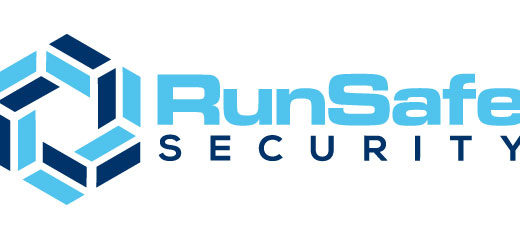Accrue is a U.S. and Hong Kong based startup building a platform that measures, analyzes and visualizes alternative data and calendars of economic events for customers in the financial industry. The firm’s founders have designed a series of databases, almanacs in their parlance, to provide customers with information pipelines to identify unusual drivers of economic activity – volume and pricing actions, religious phenomenon, seasonality, astronomy, among others – and analyze the ways in which these events are shaping financial market behavior. Combined with a set of analytical tools and a visualizer, clients can build models on-the-fly for hypothesis testing and validation in real-time. Accrue has been recognized for their work by Euromoney magazine and the London Stock Exchange.
Successfully testing these initial frameworks and analysis for personal investment and trading purposes, founder Benoit Brookens set out to build a platform of non-traditional datasets for a global audience, with particular emphasis on the Asia Pacific region, Israel, and the Middle East, with Africa in the works. Platform languages currently supported include English, Hebrew, Hindi, and Cantonese. In the financial industry alone, for context, spending on alternative data is expected to touch $USD7 Billion in 2020 and contribute to a wave of change in the industry.
Accrue’s mission is to build the most practical AI company in the world with core values around trust, transparency, auditability, repeatability, and relevance. This is the company’s “why” and the motivation behind their efforts. There will not be any black boxes or potential business insights with hand waving explanations of magic and insider language.
As a teenager, CEO Brookens began developing financial and data analytics models and tools to trade stocks after building out a website business – his first startup. A few years later, he won an algorithmic trading competition with no formal training and was offered a position with Credit Suisse trading foreign exchange, a position he held for four years. Using his own accounts as a testbed, he found incorporating economic calendar events in unique ways generated greater and more consistent profits. Thus, Accrue was born.
In broad terms, at the request of the founders, Accrue has created a number of in-house data scrapers, api tools, and global sensors to source relevant datasets to parse and import information for additional cleaning and analysis. The firm then uses a number of supervised learning methods to classify, label, and contextualize what it collects, define what constitutes an event – shaped by a variety of features and factors – and finally map these entities into a graph database. On the front end, the team has developed a simple user interface search mechanism for customers to theorize about datasets and events and test various scenarios. The team expects to develop a more sophisticated graphical front end in due course.
In addition, Accrue is in the early stages of adding blockchain functionality to their backend. Their distributed ledger will create immutable records of dataset versions, so that as raw information is updated or redacted, there is a searchable track record of events – both for historical purposes and as an event series for further analysis and insight. Historical sentiment analysis on fraudulent financial news and its impact on price movements or earnings guidance would be a simple example of this in action. As Accrue is heavily focused on transparency and explainability, creating a backend ledger is an important step to fulfilling these promises to stakeholders.
Presently, Accrue is a team of eight with a group in the Philippines under contract for dataset cleansing and other duties. Funding has come from CEO Brookens himself, family and friends, and non-equity services from Amazon Web Services, Google Cloud, and IBM, as Accrue established one of the first partnerships with Watson. Accrue is also part of the spring Tribe Accelerator cohort, a Singaporean blockchain focused accelerator through Trive Ventures.
Unquestionably, data and analytics companies abound, from traditional participants in the financial space, such as Bloomberg, Thompson Reuters, S&P Capital IQ, and Factset, to new firms claiming to have built alternative data businesses using machine learning and artificial intelligence. Overseas rivals abound as well, such as Baidu, Alibaba, and Tencent, the later having the largest social data set in China. Chinese startups, such as MiningLamp, Tongdun Technology, and Sensors Data, focusing on provincial security and finance, credit risk and fraud protection, and business intelligence, respectively, all enjoy strong funding, access to enormous scale and monetization, and fewer concerns about privacy.
Here in the United States, Palantir Technologies has demonstrated significant ML/AI success in a number of domains, but with some client controversy. Palantir recently filed for several patents in 2018 related to parsing trillions of emails, using household data – such as income and other signals – to predict future actions, and using data connected to individuals and communities to predict future criminal activity on behalf of U.S. law enforcement.
Microsoft, Oracle, Informatica, Talend and a host of startups are working diligently to carve out domain expertise. However, the ML/AI space has it share of firms making fraudulent claims, such as firm engineer.ai, which over promised their skillsets and results. Thus taken as a whole, there are well founded reasons for caution in the space.
Beyond the firm’s data and analytics beachhead in the financial space, Accrue has a number of additional domain targets – including agriculture, transportation and logistics, supply chain, healthcare and the public sector. In broad terms, Accrue believes these industry verticals in the firm’s geographic focus areas demonstrate significant potential over the medium and long term.
As a strategist, Accrue is compelling in my view because they understand their startup “why” and how it is a differentiator in the space and in their geographic areas of focus. Front and center is a strategic priority around weaving people more deeply into the decision making process, not disintermediating them or abstracting them away. Their data product and visualization solutions highlight a need for explainable approaches in the AI domain in ways that build confidence and trust.
The team has genuine expertise in financial services and understands what family offices, hedge funds, and investment teams need to be successful. Furthermore, methodologies and tools they have developed and built to manage alternative “almanac” datasets reflect core business challenges in their beachhead domain. Essentially they are identifying core industry problems, building repositories of data around these issues, creating domain expertise, and then mapping relevance visually to be explored by anyone with a subscription to their enterprise SaaS platform. Customers can combine proprietary datasets with those of Accrue should they wish to do so. Some Accrue clients have taken this step.
In the firm’s view, a perspective I share, too many firms in the space lack focus on explainability and understanding the dimensions of analysis from the standpoint of what drives an industry’s profitability. Firms in the AI domain can often demonstrate evidence and interpretability, but their insights not particularly meaningful or trustworthy because their model’s results cannot be independently audited or repeated. Accrue’s approach avoids this problem by organizing internal activities around transparency to customers and other stakeholders.
Finally, as a global firm, the team places a premium on being apolitical. For Accrue, this means a combination of avoiding government security engagements, proprietary software solutions, and single industry and geographic focus that limits credibility, impact, and scale. For CEO Brookens avoiding explicit or implicit identification of being state sponsored is a key metric of success.
Accrue’s key business challenge now is how to scale their enterprise software company with standardized products and subscription models. The financial industry has its share of niche artisanal services and Accrue wants to avoid this path. However, building functionality for standardized customization (think combining Accrue/customer datasets) and a revenue sharing model designed around this approach are very interesting to the firm. The company has simplified versions of both data approaches with pricing, but more sophisticated solutions will be needed.
Along with defining scale are choices about which industry vertical is next, when to expand, and where geographically. CEO Brookens didn’t want to discuss details and I respect this wish. Hints included organic incoming requests, which are always helpful and welcome. But ad hoc inquires are no a substitute for clear strategic choices around where Accrue’s portfolio and product fit are optimal and sustainable and where competitors are at a disadvantage. How humans talk with data varies widely too. For example, in the healthcare space the dominant first conversation is always – do no harm. That’s not the case in transportation and logistics.
There are many example of data firms who, from a distance, see nothing but blue ocean in a domain. But once up close with a customer, these firms learn the uses of their product or service are narrow and shaped by precedence and culture. These analytics firms simply did not take the time to understand the market they were pursuing within an industry. Accrue seeks to address this challenge by building competence in an industry through data and analytics as a preclude.
Concerns I have include their ability to maintain political independence. I think it is going to be a real challenge as Accrue grows, defines product solutions via co-mingled datasets, and is shaped by some global markets with different expectations and competitive pressures. The need to grow is intense and outside capital is not known for being patient, even when partners are strategic. Institutionalizing Accrue’s value system and ethos around transparency, open data, repeatability, and relevance will help create a stakeholder self selection mechanism.
Also, product categories defined by the term almanac are understandable. Almanacs were used for centuries as early prediction and prophecy models and remain a source of influence for weather, planetary behaviors, and other knowledge domains. But, I’m not convinced the term will resonate with customers. And as a centerpiece for the company’s expertise, highlighting Accrue’s brand values on the global stage, is the term almanac core to what Accrue is truly about in the space?
In summary, Accrue has created a unique enterprise SaaS platform in the space for alternative data, with a combination of technological and financial domain expertise, additional languages and geographies, and clear parameters around the firm’s “why.” They have revenue traction and incoming demand for their products in the financial services space – a very competitive domain. Doubtless, the team will continue to push further into the financial space and leverage it in significant ways with the goals of maximizing customer excitement around discovery, idea generation, and insight analysis to achieve their mission and goals.
Like all of you, I look forward to to seeing how the Accrue team develops their knowledge and insight platform over the next eighteen months and getting back in touch for an update.
Stay Tuned.



